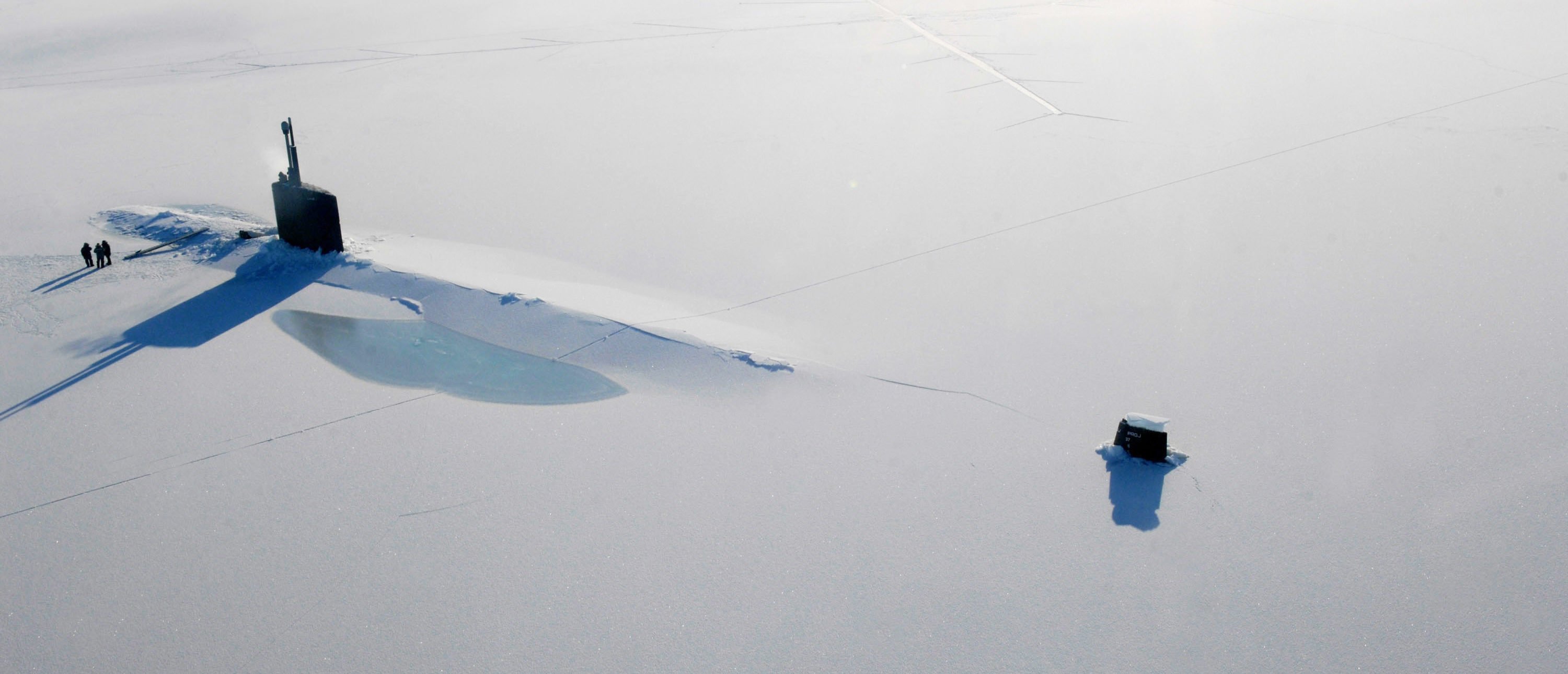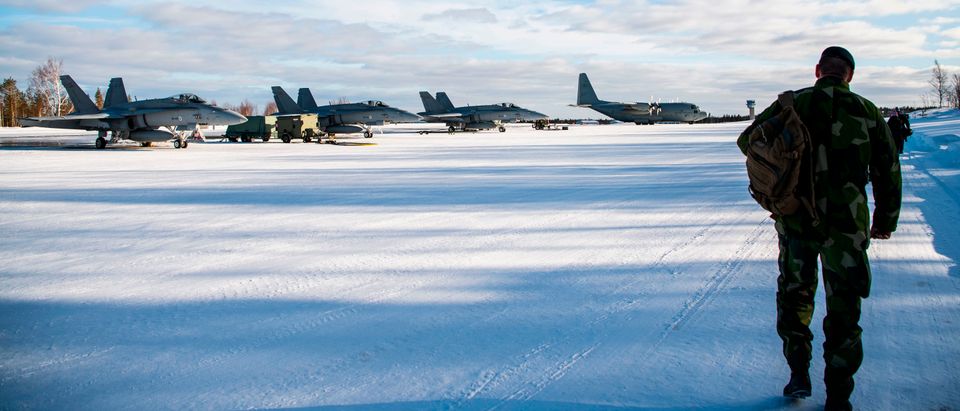Russia and NATO are each increasing their military presence in the Arctic as receding ice opens up new opportunities to expand in the region.
The potential for a conventional conflict in the Arctic is low but an increasing military buildup by both Russia and NATO could quickly set the stage for “great power competition,” according to Business Insider.
The region is becoming more accessible for military and commercial activities because Arctic sea ice has declined 10% over 30 years, National Geographic reported.

The Los Angeles-class submarine USS Annapolis rests on the Arctic Ocean after breaking through three feet of ice during an exercise (Tiffini M. Jones/U.S. Navy via Getty Images)
The United States took part in a NATO military operation in 2018 that saw an American aircraft carrier cross into the Arctic Circle for the first time since the 1990s. U.S. Navy surface ships also sailed into the Barents Sea near the Russian coast in May as rising temperatures and receding ice opened up new maritime routes, Business Insider reported.
More than 30 Russian naval vessels, part of the country’s Northern Fleet, also conducted large-scale war games in the Barents Sea earlier this month, according to the Barents Observer. (RELATED: 20,000 Tons Of Oil Spill Into Russian River)
Russian Vice Adm. Aleksandr Moiseyev said in a statement July 9 that the drills “are defensive in nature” but clarified that the naval exercise was conducted after “taking into account the international situation.”
WATCH:
Russia’s Ocean Shield exercise in 2019 previously saw naval warships travel as far south as the coast of France, Business Insider reported. Tobias Ellwood, chair of the defense select committee in the British House of Commons, said during a virtual event in June that Russia’s posture in western Europe could be a concern for NATO.
Russia and NATO have also clashed over access to airspace and maritime routes in the Arctic, according to Business Insider. The Trump administration’s withdrawal from nuclear treaties and the intelligence-gathering Open Skies treaty reportedly irked the Russians as well.


